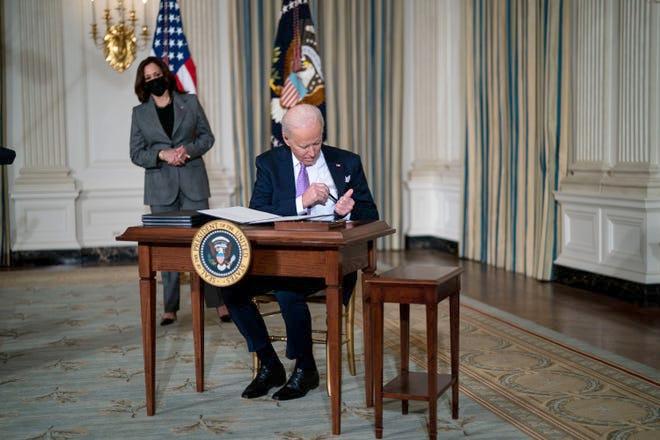
*Earlier this year, President Joe Biden put Vice President Kamala Harris in charge of addressing the border situation, according to senior administration officials. Since then, Harris has faced criticism for her handling the surge of migration at the border.
In November, CNN published a behind-the-scenes exposé on Harris’, in which insiders alleged that the Biden and Harris teams continue to be at odds over tasks assigned to the vice president that put her in “no-win political situation[s]”. According to the report, the West Wing has been especially annoyed by her handling of the border issue, a job she did not want to be tasked with, per the report.
Harris recently announced “$1.2 billion in private-sector investments in Central America as part of a program aimed at reducing migration from the region,” VOA writes.
READ MORE: Report Claims Kamala Harris Aides Suffer ‘Soul-Destroying Criticism’
“The United States has an important role to play in addressing the root causes of migration,” Harris said Monday. “At the same time, our government cannot do its work alone.”
Here’s more from Newsweek:
Through the plan, the White House intends to “support long-term development of the region” as part of its strategy to address the root causes of migration, of which economic insecurity has been pointed to as the number one factor, according to a report by a coalition of migration advocacy groups.
Among the seven new entities joining the project are CARE International, Cargill, Grupo Mariposa, Parkdale Mills, PepsiCo, JDE Peet’s, and PriceSmart. These entities will join Mastercard, Microsoft and Nespresso, which joined the effort in May. Together, the companies plan to invest in the region by opening a manufacturing hub, launching new stores and partnering with local farmers, in addition to other efforts.
“One of the weaknesses in the vice president’s record, or experience, is that she’s relatively new to federal politics and hasn’t had a ton of experience dealing with issues of foreign policy,” John Hudak, an expert with the Brookings Institution who examines the role of presidential power in policymaking, told Newsweek. “It helps her have that resume and get her that experience, which I think is substantively important for the vice president. Optically, it’s also pretty important for the vice president now and when she runs for president at a later time.”
We Publish News 24/7. Don’t Miss A Story. Click HERE to SUBSCRIBE to Our Newsletter Now!





